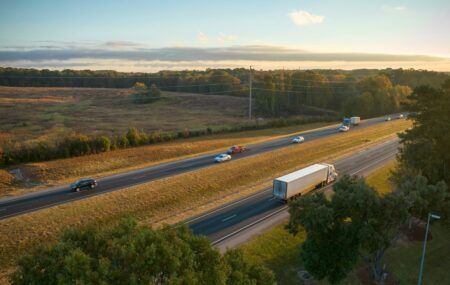The UK Parliament’s House of Lords Science and Technology Committee continued its inquiry investigating driverless vehicles yesterday (November 8) and heard evidence from leading European officials and industry experts involved in UK autonomous vehicle trials.
The session provided an opportunity for the Committee to hear from representatives from three driverless car trials in Greenwich in London, in Bristol and in Milton Keynes. The Committee explored the progress being made by the trials, and the issues they have highlighted relating to the deployment and regulation of driverless cars, as well as social and behavioral issues. The Committee also examined the extent to which the UK will have to align itself with future international regulation for self-driving vehicles in areas such as cyber-security and data handling, and assess what progress has been made in European and global regulation of autonomous vehicles.
The witnesses were: Claire Depré, head of the sustainable and intelligent transport unit of DG MOVE at the European Commission; Dr Hermann Meyer (below), CEO of ERTICO ITS Europe; Mike Hawes, CEO of the UK’s Society of Motor Manufacturers and Traders (SMMT); Professor Nick Reed (left), academy director at TRL, on behalf of GATEway (Greenwich Automated Transport Environment); John McCarthy, technical director at Atkins’s Intelligent Mobility, on behalf of the Bristol driverless cars project; and Brian Matthews, head of transport innovation at Milton Keynes Council.
Meyer highlighted that one of the key benefits from the deployment of highly automated vehicles is the enhancement of safety, and he also expressed the necessity for a common European regulatory framework, as well as focusing on interoperability of technology. Meyer said there was a strong need to test the systems and learn from the results through European testbeds. Other questions concerned liability in case of accidents and data. Meyer highlighted the fact that liability stays with whoever is in control: if the automated vehicle was in control, the liability is with the product; if the driver was in control of the vehicle, the liability lies with them. He noted that the complex part is to get the information at the exact moment the accident happened, and to have data to prove it.
Outlining where the UK is with connected and autonomous vehicles (CAVs) and what the next steps should be, Reed said, “The UK government approach to date has delivered regulatory guidance, a dedicated policy unit (CCAV), and research funding to support developments of automated vehicle technology. This has resulted in significant international impact, however, the UK is lacking an equivalent to Silicon Valley in terms of investment, community, and risk-taking approach. Users of CAVs stand to benefit in several ways, including improved safety, accessibility, emissions performance and asset use. There will also be substantial commercial benefits, such as the emergence of truck platooning, which is set for UK trials imminently.”
Reed concluded, “To maximize UK impact of CAVs, it is vital that the key organizations working in this area are provided with an environment in which they can successfully achieve international ambitions from a domestic base.”
The event was streamed live on Parliament TV and the recording is available here.




